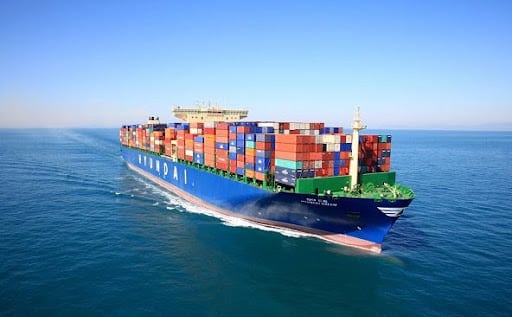Toward the beginning of April, eight furnished thieves boarded the holder transport Fouma as it entered the port of Guayaquil, Ecuador. They discharged admonition shots toward the boat’s scaffold, boarded the boat and opened a few transportation compartments, evacuating obscure things before getting away in two speedboats. No one was hurt.
Ecuador isn’t actually a problem area of worldwide robbery, however equipped looters routinely assault delivers in and around the port of Guayaquil. It’s the seventh-busiest port in Latin America, taking care of the vast majority of Ecuador’s agrarian and mechanical imports and fares. Boats secured along the port’s quays or, similar to the Fouma, traveling its thin waterway entries are simple prey for nearby groups of thugs.
Just a couple of brief years prior the worldwide network was commending the finish. Worldwide in 2019, there were less assaults and endeavored assaults on ships than there had been in 25 years.
Be that as it may, as the Guayaquil assault indications, privateers might be getting increasingly dynamic. As of now, the initial three months of 2020 have seen a 24% expansion in privateer assaults and endeavored assaults, over a similar period in 2019. As a researcher of ocean robbery, I stress that the coronavirus pandemic may make theft significantly to a greater extent an issue in the coming months and years.
Counter-robbery victories
Current ocean robbery regularly includes privateers in little quick pontoons drawing closer and boarding bigger, more slow moving boats to deny them of freight –, for example, vehicle parts, oil, group assets, correspondence hardware – or to hold onto the boat and team for emancipate.
Starting in 2008, the more prominent Gulf of Aden region off the shore of East Africa turned into the most risky waters on the planet for privateer assaults. Somali privateers like those depicted in the 2013 Tom Hanks film “Skipper Phillips” went through five years consistently commandeering enormous business vessels.
Three universal maritime endeavors, and industry-wide endeavors to make ships more earnestly to assault and simpler to protect, decreased the danger – as did improved neighborhood government ashore, for example, upgraded Harbour towage security and better wellbeing and training services. By 2019, the International Maritime Bureau announced no effective hijackings in the Greater Gulf of Aden.
In Southeast Asia, better elevated and maritime reconnaissance has controlled privateer dangers, with the assistance of improved coordination between national governments that share locale of the area’s bustling delivery paths.
Because of these endeavors, the worldwide number of assaults and endeavored assaults dropped fundamentally over the previous decade, from a high of almost 450 episodes in 2010 to less than 165 occurrences in 2019 – the most reduced number of real and endeavored privateer assaults since 1994. Boat hijackings, the most extreme and obvious appearance of ocean robbery, likewise have declined since 2010.
An arrival of privateers?
Be that as it may, the Fouma assault is an alarming sign. The ocean looters appear to have had point by point advance information on the boat’s load, just as its course and the staff ready. Those are intimations that the privateers arranged the assault, likely with assistance from the group or others with explicit data about the boat.
Such an insider data is moderately uncommon in privateer assaults as a rule, yet is basic when privateers follow huge freight vessels and big hauler ships, as occurs in around 33% of privateer assaults.
Robbery in the waters off of South America – and off West Africa – has been expanding to some degree as of late. A portion of the conditions in those locales are like the ones that drove the Somali spike 10 years back: feeble governments entangled in political viciousness, across the board financial difficulty and simple access to weapons.
Most robbery at last influences helpless nations with feeble governments. That is on the grounds that lawbreakers, guerillas and different gatherings see chances to fund-raise for their territory based fights by taking from passing boats. For example, aggressor bunches in Nigeria, especially in the Niger River Delta locale and the Gulf of Guinea, siphon oil off big hauler transports and exchange it on the underground market.
The coronavirus debilitates countries – and ships
The clinical and financial aftermath from the coronavirus pandemic appears to probably present extreme difficulties for nations with hardly any assets and powerless governments. West African and South American nations as of now battle to police their regional waters. Those districts have not yet been seriously influenced by the coronavirus, however diseases are developing on the two mainlands.
As clinics load up with COVID-19 patients, the locales’ legislatures will in all likelihood move their open security endeavors from ocean theft and toward progressively quick worries ashore. That will make open doors for privateers.
The illness may make it harder for teams to secure ships also. Most groups are as of now extended slender. On the off chance that group individuals become ill, limitations on worldwide travel keep their substitutions from meeting the boat in whatever port it’s in.
Easing back purchaser spending far and wide methods less exchange, which carries less income for transportation organizations and Pilotage services to spend on outfitted gatekeepers or different techniques for securing ships against privateers. Therefore, boats will probably become simpler focuses for privateers.






